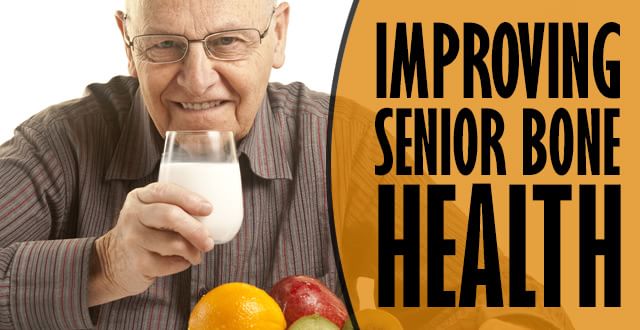Osteoporosis is the loss of bone density and occurs mostly among aging adults. This can result in painful fractures and deformities. Fracture of the hip, wrist, and spine are the most common effects of osteoporosis. Bones are constantly being reformed with some bone mass being removed and new bone mass being added. Until the age of 30, the addition of bone mass is greater than that being removed.
However, after this age, the addition slows down, leading to a gradual erosion of bone density. While this is a physiological change, seniors can take steps to slow down the loss of bone density.
While bone loss occurs with age, some people are more susceptible to it. Those who have been physically inactive, people of white and Asian descent, those who have regularly consumed tobacco and alcohol, women, extremely thin people with a body mass index less than 19%, and women who have suffered from delayed periods before menopause are all at greater risk of osteoporosis. All of these people should consult with their doctor and take steps to improve their bone health.
Hormones
Women over the age of 50 experience greater bone density loss as after menopause the body stops producing sufficient estrogen needed for healthy bones among other things. Depending on the specific health conditions doctors might recommend estrogen replacement therapy or simply prescribe a greater intake of calcium and Vitamin D. Similarly, for men over the age of 70, there is drop in testosterone levels which can also affect bone density.
High levels of thyroid hormones, or hyperthyroidism, can significantly increase bone loss. Both men and women should have their thyroid hormone levels checked periodically to spot any excess levels of this hormone and obtain treatment to keep levels within the normal range.
Calcium Intake
Seniors should increase their daily intake of calcium. Women over the age of 50 and men over the age of 70 should consume 1,200 mg of calcium each day.
There are many dietary sources of calcium such as milk, almonds, broccoli, tofu and other soy products, and sardines and salmon. Seniors should also consult with their doctor about calcium supplements.
Vitamin D
The body needs Vitamin D to absorb calcium. Vitamin D can be obtained by exposure to sunlight, or consuming oily fish such as sardines and tuna, drinking fortified milk, or egg yolks. The daily recommended intake of vitamin D for seniors is 800 IUs, up from 600 IUs for those who are less than 71 years old. Seniors who are worried about their vitamin D intake can ask their doctor for supplements.
Physical Activity
While consuming calcium and Vitamin D will provide the raw materials for bone building, you need to include physical as well. Weight bearing exercises are ideal for improving bone health. These include walking, climbing stairs, playing tennis, or jogging. The actual exercise you choose will depend on your overall physical health and interests. Seniors taking up physical activity after a break or for the first time should consult with their doctor about what they can do. As weak bones can lead to fractures, seniors should be extra careful about avoiding falls even as they exercise.
Substance Abuse
Studies have shown that smoking and drinking more than two pegs of alcohol a day can also speed up loss of bone density. While all adults should try to avoid substance abuse, seniors who want to avoid further bone damage should take steps to avoid alcohol and tobacco. Limiting drinks to two or less a day and giving up smoking can help preserve bone density.
Having your hormones level checked, increasing your calcium and vitamin D consumption, increasing your physical activity and avoiding alcohol and tobacco are some ways to help your bone health.
As always, check with your Doctor before making any changes to your diet and physical activity levels.

